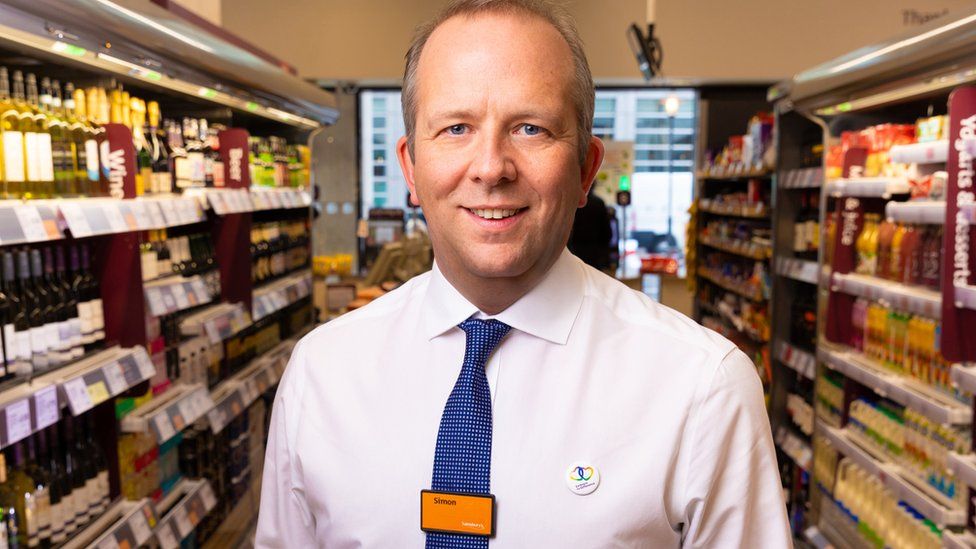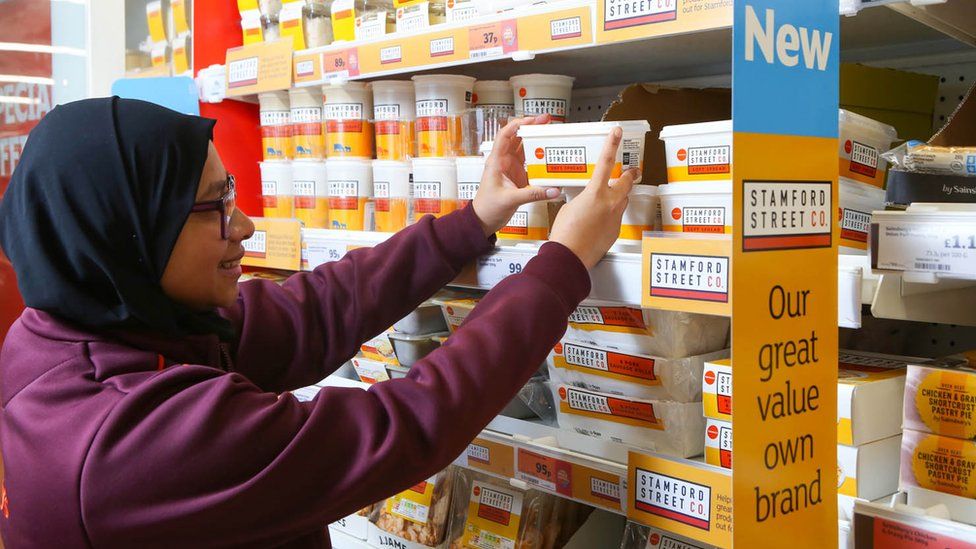Supermarkets have been accused of “greedflation” – putting prices up to bolster profits.
 Image source, Andrew Porter Photography
Image source, Andrew Porter PhotographySupermarkets have not been using high rates of inflation as a cover for making higher profits, the boss of the UK’s second largest grocery chain has said.
Sainsbury’s had made less money, to keep prices down, Simon Roberts said.
Critics have accused food retailers of “greedflation” – putting prices up to bolster profits.
The competition watchdog has said it will look at how the grocery market is operating.
As well as the new focus on high food prices from the Competition and Markets Authority, some politicians have called for action on food prices.
But Mr Roberts told the BBC that Sainsbury’s and other grocery chains had spent money to “battle inflation” and avoid passing all of the rising costs onto consumers.
“We made less profit year-on-year and that’s because we made really conscious decisions to keep our prices as low as we could,” Mr Roberts said.
Sainsbury’s made £690m in pre-tax profit in the year to March, a fall from £730m the previous year.
There have been growing calls for more clarity over how food prices are set.
General inflation has fallen to 8.7%, and energy prices and some wholesale food prices have started to fall back. But food price inflation remains stubbornly high at 19%.
Ged Futter, a former senior buyer at supermarket Asda and now a retail analyst, said suggestions that supermarkets were “raking in” profits were misplaced, pointing to lower profits across the sector.
“There is no evidence from a single supermarket that this is profiteering,” he said. “What they are doing is absorbing some of the higher costs.”
The large supermarkets all made lower profits or losses in the last year, he said. Tesco, the UK’s largest supermarket chain, earned pre-tax profits of £1bn, half of what they earned the previous year.
Profit margins in the industry were below 5%, Mr Futter said, much lower than in food manufacturing. Costs in the agricultural sector have risen by 30%, he added, suggesting farmers and retailers were absorbing some of the price rises.
In recent days, several supermarkets have announced lower prices for some basics that are common to most shopping baskets: bread, milk and butter.
“We invested over £560m in the last year, others have done similarly,” Mr Roberts said.
Mr Roberts said pay rises for Sainsbury’s staff of more than 10% last year had contributed to rising prices, but were “locked in”, while he hoped the cost of other inputs such as energy and food commodities would continue to fall.
Tesco, Morrisons and Asda have also raised staff wages in recent months, as have budget retailers Aldi and Lidl.
While the headline rate of food inflation was around 19%, that didn’t mean households were spending 19% more on their food, Mr Roberts added, since most shoppers had decided to buy less, trade down to less expensive choices, or shop more frequently to avoid waste.
Shoppers were increasingly turning to own-label products, Mr Roberts added.
Sainsbury’s has relaunched its own-label range under a new brand name, Stamford Street, to help shoppers find the cheaper options quickly, he said.
The range will include 200 products, and will include new staples such as king prawns and cheese tortelloni pasta.

Image source, Rachel Adams
It is named after the spot near Blackfriars in London where Sainsbury’s had its head office for over a century, but which has now been demolished.
Sainsbury’s is not the only grocer hitting back at criticism over profiteering.
On Wednesday, Marks & Spencer chief executive Stuart Machin also denied the sector was guilty of “greedflation” and said his company had also invested to protect customers from the full force of inflation, impacting its profit margin because it was “the right thing to do”
There are structural reasons why prices may not fall rapidly even when energy and wholesale and commodity prices fall, the industry has pointed out.
Many retailers sign long-term contracts for products and so will have baked in some of the higher prices, the British Retail Consortium said.
Unilever boss Alan Jope has also dismissed accusations of greedflation, saying the company was only passing on three-quarters of the higher costs it was facing.